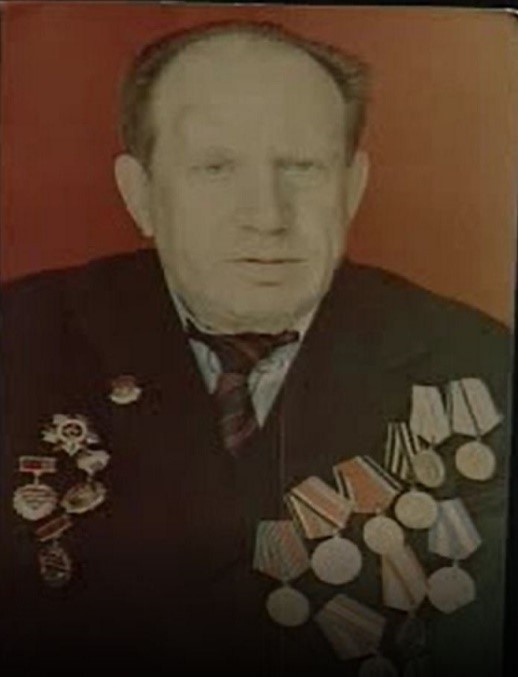Moisei Berenshtein was born in 1918 in Chornobyl (Chernobyl), northern Ukraine, as Moyshe-Arn (Moshe-Aharon). His paternal grandfather, who had owned several shops in the town and been a wealthy man, was expropriated during the revolution of 1917-18. Moisei's father Manus was a harness master and a furniture repairman. After 1933, he settled in a kolkhoz, where he worked as a harness master. Moisei's mother was a homemaker. The family was religious. At the age of five, Moyshe-Arn was sent to a cheder; at the age of 13, he had his bar mitzvah. Nevertheless, he insisted on studying at a Ukrainian school, rather than a Yiddish one. Upon finishing school, Moisei enrolled in the newly opened dental school in Zhytomyr, northern Ukraine. After graduating from it, Moisei returned to Chornobyl and opened a dental clinic there.
On June 22, 1941, the Soviet-German War broke out, and Berenshtein, who had been drafted into the Red Army as a physician, reported to the Chornobyl recruitment office. On the next day, his regiment was billeted in Priluki, ready to move into Western Ukraine. During the first months of the war, as the Red Army was retreating, Berenshtein was required not only to treat aching teeth, but also to render other kinds of medical assistance, and even to evacuate wounded soldiers from the battlefield. In November 1941, together with his 754th Antitank Artillery Regiment, Berenshtein took part in the first liberation of Rostov-on-Don, in the North Caucasus (the city would be reoccupied by the Germans in July 1942). On December 2, 1941, the whole medical battalion of the regiment was taken prisoner by the Germans. While in captivity, Berenshtein was denounced as a Jew by one of the medical orderlies. He was taken away to be shot, but a sudden Soviet bombing raid rescued him: In the ensuing chaos, Berenshtein joined a construction brigade that was being formed by the Germans, and managed to escape during the march to the construction site. After several days of wandering, Berenshtein was stopped by a Red Army reconnaissance unit. He was taken to the Soviet headquarters, and from there was handed over to SMERSh, the anti-spy agency of the Red Army. For a long time, he was held in Special Camp #240, being constantly interrogated. Berenshtein's profession saved him. In April 1942, he was cleared of the charge of espionage and sent to Moscow, to the Main Military Sanitary Directorate of the Red Army. There, he completed a course in facial surgery, and was then transferred to the Transcaucasian Front. His new place of service was the 28th Reserve Division, which was engaged mainly in the training of recruits. In April 1943, the 35th Rifle Regiment, where Berenshtein was serving as a senior physician, was transferred from Georgia to the front lines. That same year, Berenshtein was shell-shocked. After a stay at a hospital, he was discharged from the military as unfit for service.
After the war, Moisei Berenshtein returned to Chernobyl, and he went on to work as a dentist in the town until 1986 (the year of the Chernobyl nuclear disaster). He was awarded several medals ("For the Defense of Kiev," "For the Defense of the Caucasus," etc.).







